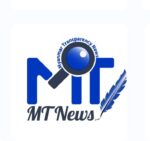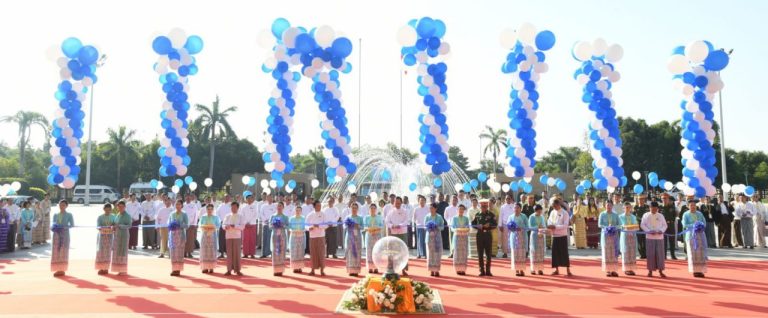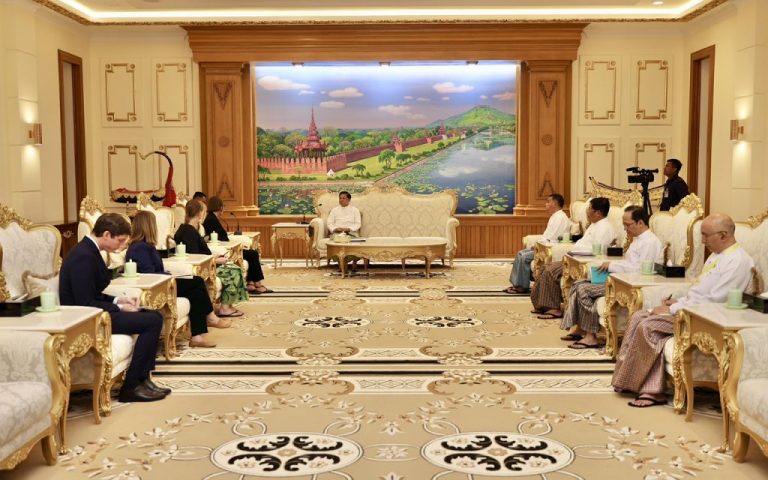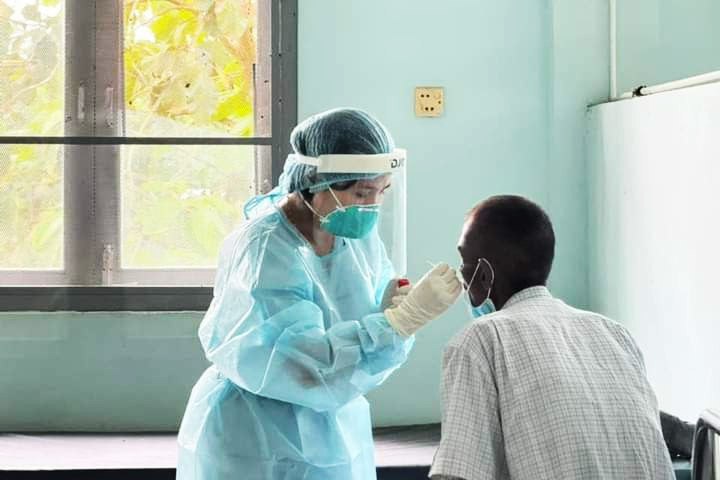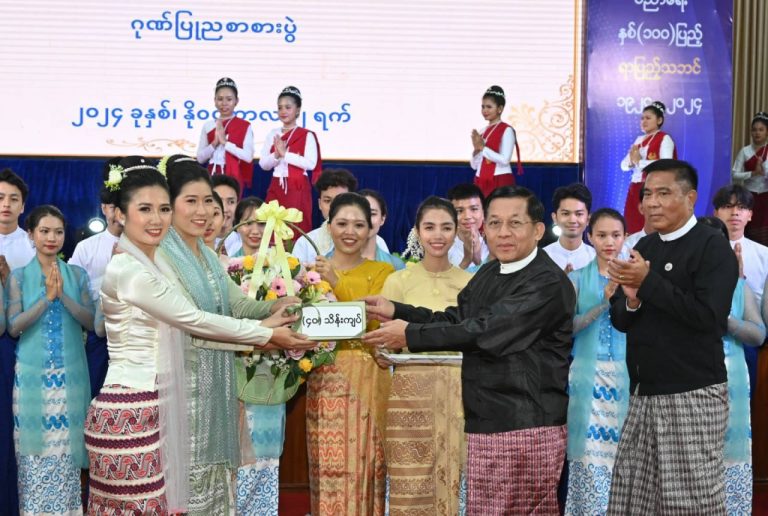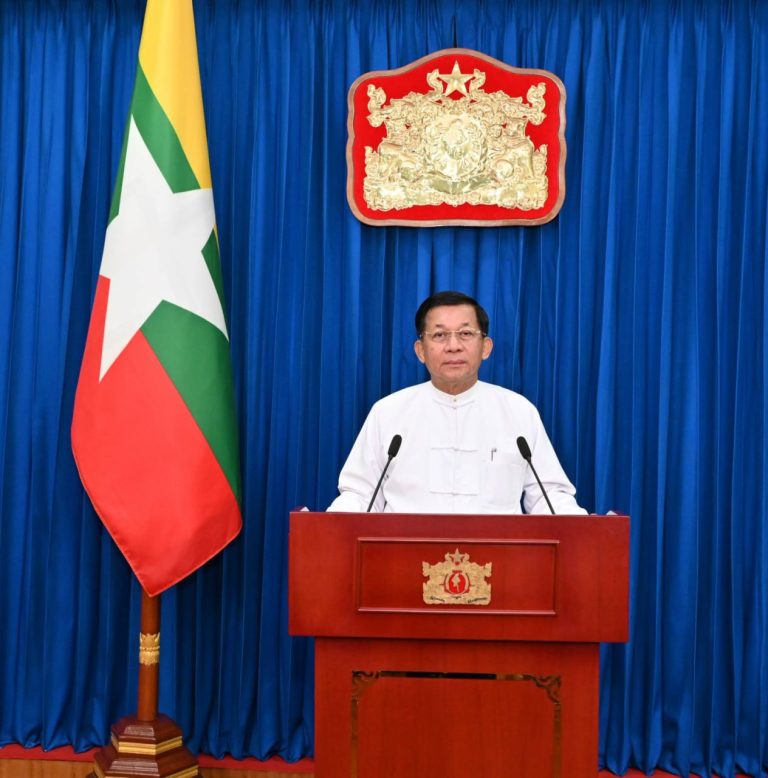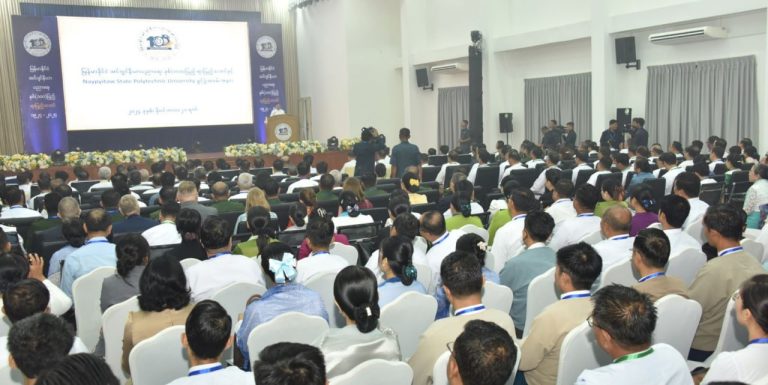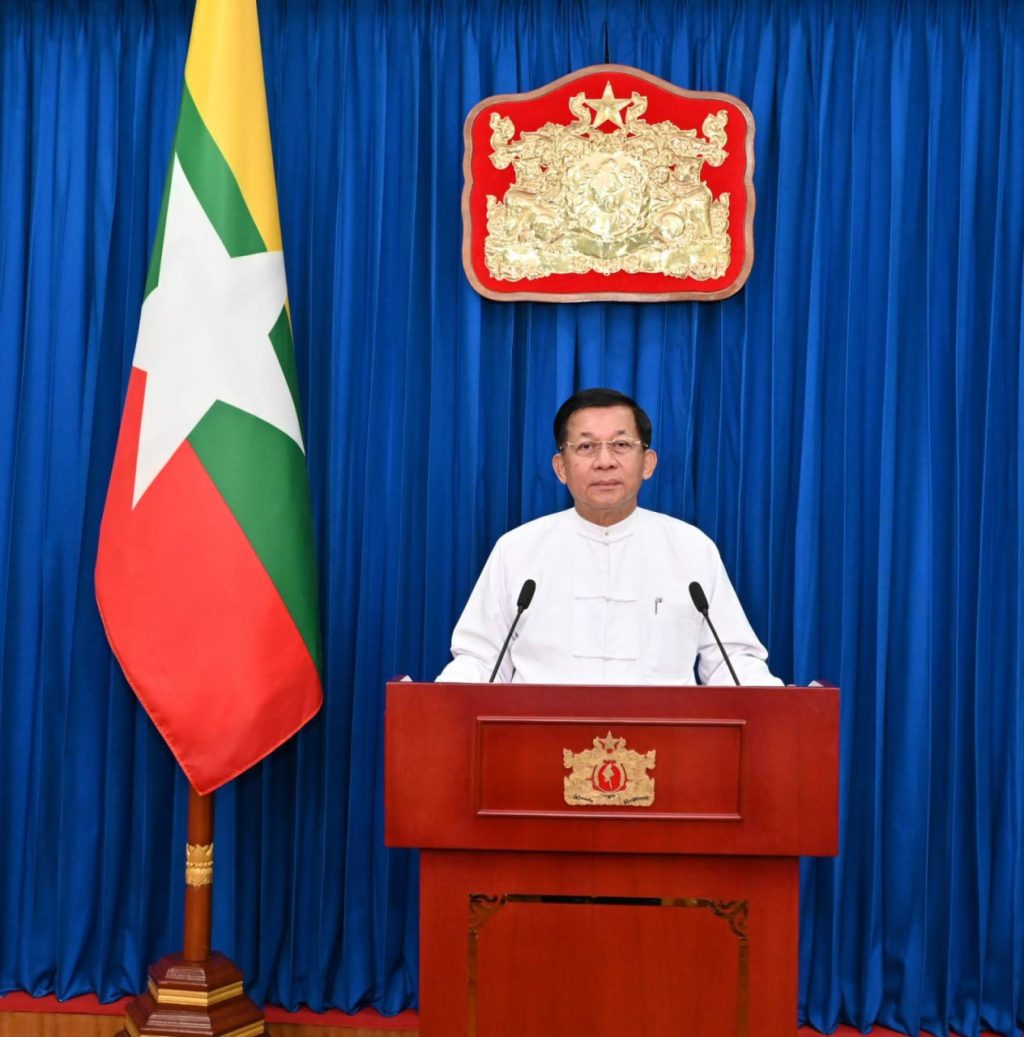
Mingalarbar,
First, I extend my heartfelt blessings for good health, peace of mind, and prosperity to all the distinguished individuals present today, including the esteemed traditional physicians from various regions and states, relevant experts, and honored guests. My sincere greetings and best wishes go to those who are dedicated to preserving, promoting, and advancing Myanmar’s rich cultural heritage and traditional medical practices.
The annual conferences and seminars, which have been held since 2000, are now in their 23rd year. This year’s conference was organized with the following purposes: “To recognize the quality of traditional medicine education,” “To further develop traditional medicine and align its practices with modern systems,” “To train and produce more qualified traditional medicine professionals,” and “To respect and uphold the traditional cultural heritage of Myanmar’s medical practices.” The purpose of holding these annual conferences and seminars is to promote the use of traditional medicine and remedies in supporting public health, in line with Myanmar’s long-standing tradition of providing effective healthcare to its people with traditional medicines throughout history.
Today, we are working towards achieving a national goal set by the state: to establish a healthcare system that provides comprehensive coverage for all citizens, ensuring a long and healthy life for the entire nation. In advancing this process, human resources are crucial. It is only through the expertise of health professionals, specialists, and experts that we can build a more developed nation.
We established the University of Traditional Medicine to foster the development and advancement of Myanmar’s traditional medicine. Each year, the university produces skilled experts in traditional medicine and valuable human resources.
I would like to urge traditional medicine practitioners and entrepreneurs in the sector to collaborate in efforts to increase life expectancy and ensure that all individuals have access to a quality healthcare system. Myanmar’s traditional medicine heritage, which includes remedies based on the Four Great Nayas Desana Naya, Besijja Naya, Vijjadhara Naya, and Nakhatta Naya along with literary records, traditional medical texts, sacred books, and medical manuscripts written over the centuries, hold immense value. Therefore, it is the responsibility of Myanmar’s esteemed traditional physicians to preserve, pass on, and further develop both the tangible and intangible cultural heritage of Myanmar’s traditional medicine.
It is noted that 13 papers will be presented at this year’s seminar. Since these papers also describe the traditional medicines and therapies of ethnic minorities, it is important to highlight the need for encouraging the public to learn about and utilize these remedies, which are actively used by ethnic communities.
Furthermore, more research and documentation on traditional medicine is needed to ensure that the public can use authentic, high-quality, safe, and effective traditional medicines. To be able to document the research, annual symposiums are organized. This year, the 13th Traditional Medicine Research Symposium was held. Therefore, traditional medicine physicians, researchers, pharmacists, relevant experts, and manufacturers must all continue to study and make ongoing efforts to advance the field. I am pleased to see that the proceedings of the 22nd Seminar, held last year, have been compiled into a record book.
Our country is collaborating with international organizations across various sectors, including the traditional medicine sector. To advance traditional medicine in line with modern developments, we must send scholars abroad to acquire knowledge and share technologies, and then adapt and apply these innovations in a manner that is suitable for our country, ensuring further development of the field. I am pleased to note that on June 25, 2024, the Department of Traditional Medicine and the University of Traditional Medicine (Mandalay) signed a Memorandum of Understanding (MoU) with Yunnan University of Traditional Medicine, China, to implement guidelines for the further development of traditional medicine.
The state is providing strong support to the traditional medicine sector in order to enhance its role in healthcare. With the support of the state, traditional physicians continue to play a vital role in caring for the health of the people. Additionally, I am pleased to see that traditional medicine continues to provide care and support to the people, even in the face of natural disasters and epidemics.
In addition, as part of efforts to promote the MSME industry and strengthen the export sector, which are key pillars of the country’s economic strategy, the government is supporting the long-term sustainability of Myanmar’s traditional medicine products, which are based on traditional medicine raw materials. In terms of the production of Myanmar traditional medicines, if we can improve the quality and scale of production expanding beyond the domestic level to regional, national, and even international markets we will be able to contribute significantly to supporting the national economy.
According to Burmese traditional medicine, to lead a long and healthy life free from disease, one must live and eat in harmony with the four principles: karma, mind, weather, and nutrition. I am pleased to see that traditional medicine experts are providing medical treatment in rural areas and offering health education to the public, encouraging them to adopt healthy lifestyles and eating habits based on traditional medicine practices. I would like to encourage them to continue and expand these efforts even further.
In conclusion, the purpose of holding this seminar annually is to ensure the sustainable maintenance of public health through traditional medicine, while fostering greater trust, respect, and confidence in traditional medicine among the public. At this conference, held with this goal in mind, may experts from the Ministry of Health, the Department of Traditional Medicine, the University of Traditional Medicine, and experts from other related ministries, as well as members of the Myanmar Traditional Medicine Council, the Traditional Medicine Advisory Group, the Myanmar Traditional Medicine Association, the Myanmar Traditional Medicine Manufacturers and Medical Equipment Manufacturers Association, and traditional medicine experts from across the country, engage in constructive and collaborative discussions. In conclusion, I wish for the accelerated development of Myanmar traditional medicine, and for it to further enhance the health of the people with the highest quality standards.
Thank you all.
